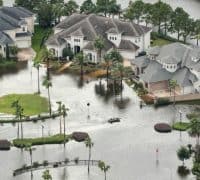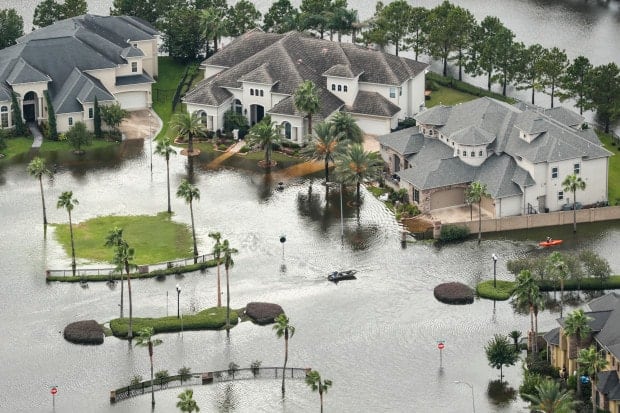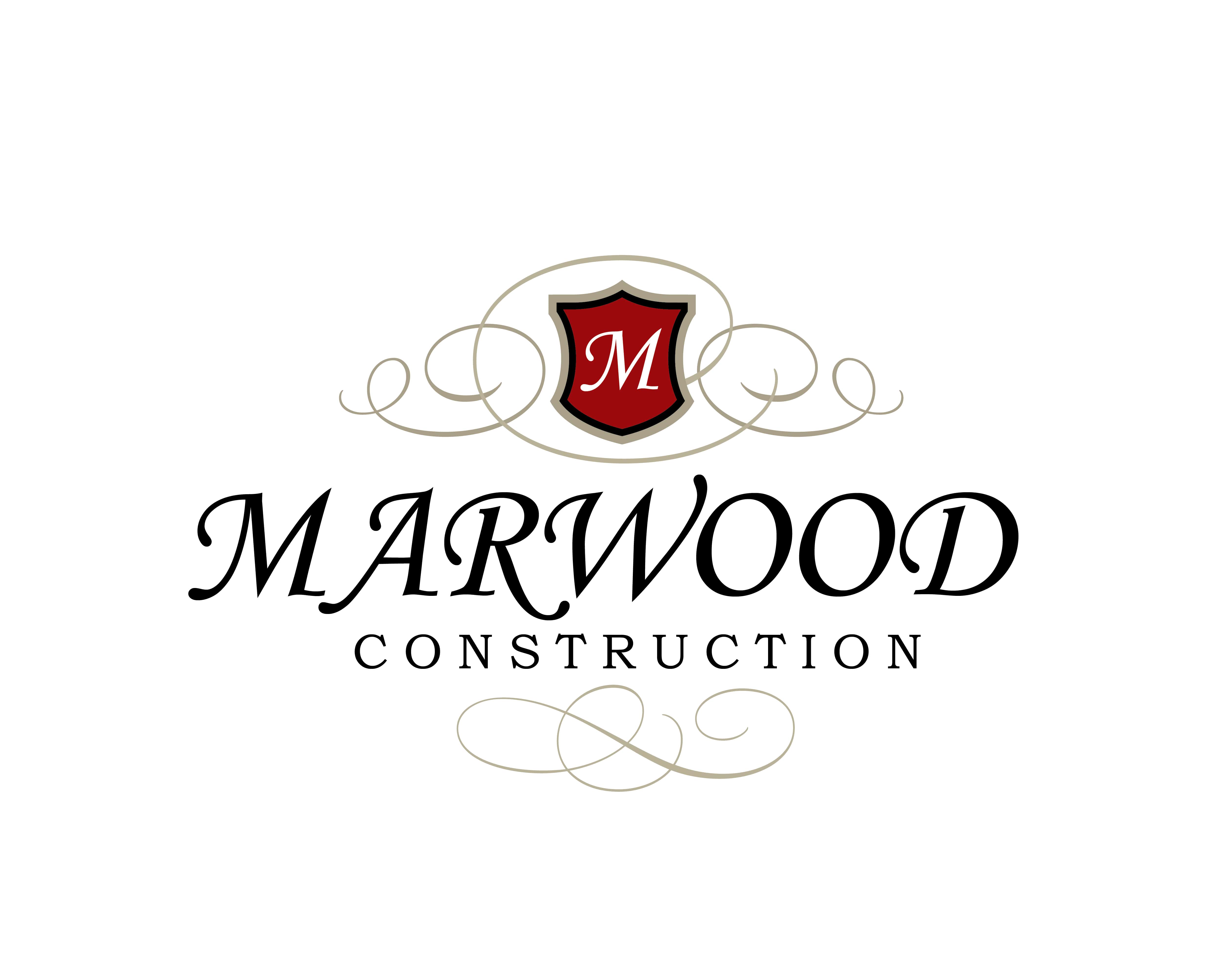
Houston experienced what weather experts are calling a 800 year storm when Hurricane Harvey spent 4 days over South Texas dumping a record 50+ inches of rain on our fine city. As a consequence of this devastation, homes that had never previously flooded took on large amounts of water resulting in huge sums of financial damage. Most home flood victims are now dealing with the grim realty that their flood insurance claim benefits are not sufficient to cover all the product replacement of their damaged homes and content.
If dealing with the emotional trauma and being forced out of your home was not enough, the frustration continues to build as homeowners are required to reach in their pockets to make up the difference of the repair cost left from insufficient insurance benefits. The frustration only compounds over time as they begin to further understand that even after their homes and lives have been put back to normal, their once most valued asset will now likely take a major hit in market value due to the home flooding. What will be the market value affect of the vast number of flooded homes? What will be the market value affect on neighboring properties?
Insured Homes and Uninsured Homes
In Texas, homeowners insurance does not cover flood damage to homes. Homeowners are required to purchase flood insurance underwritten by the federal government. Not all homes purchase or are required by their lenders to carry flood insurance. If your property is not located in the 100 year flood plain as defined by the Federal Emergency Management Association, FEMA maps, your lender does not typically require flood insurance. So when properties that do not have flood insurance take on flood waters, it has a profound effect on market values for both the damaged property and the nearby neighborhood values.
The most significant impact on Houston home values are homes that were not insured. If your uninsured home was not in the flood plain and had never previously flooded, the occurrence of flood damage is devastating to the owners financial interest. In most cases as little as 6 inches of water can cause $100,000’s of dollars worth of damage to most homes. This event has dire financial consequences to most owners in their ability to restore their homes and/or to arrange additional home improvement financing in addition to their mortgage. This leads to many uninsured homeowners equity being wiped out and faced with the unpleasant reality of going further in debt on an asset that is likely going to drop in value in the foreseeable future. This can unfortunately lead to homeowners walking away from damaged homes and / or filing for bankruptcy.
The dire personal consequences of this scenario can have huge ripple effects for the immediate neighbors and community. As homes remain in a decrepit state for extended periods of time and local market values fall due to the sale of these distress properties by the banks. This exact situation happened in New Orleans in the aftermath of Hurricane Katrina. In the most severe cases homes were abandoned and left for FEMA to demolish and haul away the debris, leaving the land on the books of the banks until FEMA purchased.
Flood Damage Disclosure Requirements
As anyone who has purchased a home in Texas very well knows that it is state law that requires sellers to disclose any major damage claim events to the buyer during the offering stage of a real estate transaction. The Texas TREC Sellers Disclosure policy was created as a means for home buyers to transparently understand significant events that could affect the perceived market value of a given property. The flooding of a natural disaster qualifies for such a disclosure.
The question is, what is the direct affect of this disclosure on the market value of a home that has experienced storm flooding? This is a difficult question to answer because there are so many different factors that intertwine in the property valuation. The first factor is the honesty of the seller to disclose issues that they understand will diminish their homes value to a buyer.
When a homeowner makes an insurance claim there is a permanent recording of this claim that is shared nationally with all insurance companies. It is not required for the claim to be paid, but the claim itself is the record. It is the same situation with home repairs that require building permits. The permits create a record of the Home Improvements inspections for the sake of public safety and home value assessments by the local property taxing authority. Without these recording safeguards home buyers could easily be fleeced, resulting in the erosion of their homes future equity.
Historical Flood Impacts on Home Values
Hurricanes and major rain events that have lead to flooding are not new to the Houston area. We have experienced some major flooding events in just the past several decades. Storms by the names of Ike, Allison and the Tax Day floods have caused damage and loss of life. Both Harvey and Allison were considered 500 year flood events. Since 2001, Houston has had 6 major flood events recorded. This is more flood events in the last 16 years then the past 50 years. Needless to say the pattern is happening in much greater volumes and frequency in recent years.
Although there is no direct historical data to correlate the exact impact of a home’s flooding on the immediate market value, most historical researchers agree that there is anywhere from a 10% to a 30% drop in market value after a significant flood event. This is not always the case, a study done after Tropical Storm Claudette indicated little to no changes in Home Prices In Houston in 1979. It is widely believed there is always going to be downward home price pressure immediately after a flood event, but the length of time depends on the magnitude of the event, the local corrective action by the local authorities and the general supply and demand of home inventory.
Immediate Impact on Home Prices
Many studies show the greatest immediate impact on decreasing home values are experienced by homes that have had multiple flood events and homes that experienced severely deep water flooding. The severity and repeatable incidents causes likely buyers to ignore discount pricing and the added homeowner expenses of higher insurance cost and higher lender down payment requirements.
The stigma of flooded homes reminds people of the stress, fear and frustration that many faced being chronicled by the television media 18 hours a day. It takes time for these emotional evoked images to fade from our memories. For those unfortunate owners that have experienced a home flooding, if there is another option that they can afford for their housing needs, most are happy to never go through another event again. But alas, there are large number of homes that have been flooded multiple times that the owners cannot sell without occurring large capital losses.
Intermediate Impact from Housing Inventory Shortage
Much of the housing price data cannot clearly be traced to the flood event directly. This is due to all the economic forces at work affecting the housing prices. In Houston we have learned to expect property values to routinely increase year after year. During the great financial crisis of 2008 – 2009, national homes plummeted more than 50% on the average. In places like Detroit, Michigan there were areas of the city that homes were selling for $10,000 – $30,000 that the year previously had sold for $250,000. During this period Houston home sales fell dramatically, but home prices held up on the average between 10% – 20% their former value. These same home values bounced back much sooner than the national home price index. Oil prices at the time were credited for much of this local recovery.
At the time of Hurricane Harvey the housing market was described as generally in an equilibrium. Some price ranges were favorable to sellers and other price ranges were favorable to buyers. The aftermath of Harvey has quickly shifted to a seller’s market in most price ranges after owners displaced by the floods look for alternative housing while their area rebuilds. The rental market vacancies have been quickly absorbed as flooded owners look for more affordable temporary housing instead of motels and hotels.
Future Impact of Home Prices
So this begs the question, what will happen to home values in Houston for the next 2 to 5 years? Although it is anyone’s guess what will happen, but we can get a good indication at what is likely to happen from examining the local housing numbers. It is estimated that more than 70,000 single family homes were substantially damaged by Harvey in Houston and upward to more than 100,000 homes in southeast Texas gulf coast. More relevant is that it is estimated that 70% of these homes had no flood insurance. It is anyone’s guess how many of these are left abandoned.
The greater Houston home sales market produces approximately 74,000 homes annually and homebuilders and developers produce approximately 40,000 new single family homes in the greater Houston area. Assuming that there is not a large exodus from the Houston area or an abnormal amount of new listings, it will likely take Houston 3 to 5 years to normalize housing inventory levels. That is assuming building new homes at the previous level and supplying an additional 8,000 to 12,000 housing units to replace those homes removed from service.
Although this may not seem like a difficult production rate to achieve, the current national housing market is suffering from a labor shortage. So to increase the number of housing units by 25% may prove to be more difficult than one may first believe. Regardless of the exact numbers, the current displaced owners and the shortage of housing units will indeed create economic housing price pressures for the supply and demand for homes. So it is logical to anticipate that home prices will be increasing at a faster pace than the current 3% annual change.











